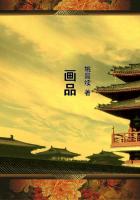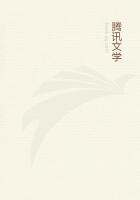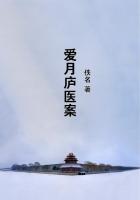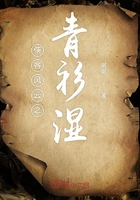Something interfered, and we did not visit the Red Sea and walk upon the sands of Arabia. I shall not describe the great mosque of Mehemet Ali, whose entire inner walls are built of polished and glistening alabaster;I shall not tell how the little birds have built their nests in the globes of the great chandeliers that hang in the mosque, and how they fill the whole place with their music and are not afraid of any body because their audacity is pardoned, their rights are respected, and nobody is allowed to interfere with them, even though the mosque be thus doomed to go unlighted;I certainly shall not tell the hackneyed story of the massacre of the Mamelukes, because I am glad the lawless rascals were massacred, and I do not wish to get up any sympathy in their behalf; I shall not tell how that one solitary Mameluke jumped his horse a hundred feet down from the battlements of the citadel and escaped, because I do not think much of that--I could have done it myself; I shall not tell of Joseph's well which he dug in the solid rock of the citadel hill and which is still as good as new, nor how the same mules he bought to draw up the water (with an endless chain) are still at it yet and are getting tired of it, too; I shall not tell about Joseph's granaries which he built to store the grain in, what time the Egyptian brokers were "selling short," unwitting that there would be no corn in all the land when it should be time for them to deliver; I shall not tell any thing about the strange, strange city of Cairo, because it is only a repetition, a good deal intensified and exaggerated, of the Oriental cities I have already spoken of; I shall not tell of the Great Caravan which leaves for Mecca every year, for I did not see it; nor of the fashion the people have of prostrating themselves and so forming a long human pavement to be ridden over by the chief of the expedition on its return, to the end that their salvation may be thus secured, for I did not see that either;I shall not speak of the railway, for it is like any other railway--I shall only say that the fuel they use for the locomotive is composed of mummies three thousand years old, purchased by the ton or by the graveyard for that purpose, and that sometimes one hears the profane engineer call out pettishly, "D--n these plebeians, they don't burn worth a cent--pass out a King;"* I shall not tell of the groups of mud cones stuck like wasps' nests upon a thousand mounds above high water-mark the length and breadth of Egypt--villages of the lower classes; I shall not speak of the boundless sweep of level plain, green with luxuriant grain, that gladdens the eye as far as it can pierce through the soft, rich atmosphere of Egypt; I shall not speak of the vision of the Pyramids seen at a distance of five and twenty miles, for the picture is too ethereal to be limned by an uninspired pen; I shall not tell of the crowds of dusky women who flocked to the cars when they stopped a moment at a station, to sell us a drink of water or a ruddy, juicy pomegranate; I shall not tell of the motley multitudes and wild costumes that graced a fair we found in full blast at another barbarous station; I shall not tell how we feasted on fresh dates and enjoyed the pleasant landscape all through the flying journey; nor how we thundered into Alexandria, at last, swarmed out of the cars, rowed aboard the ship, left a comrade behind, (who was to return to Europe, thence home,) raised the anchor, and turned our bows homeward finally and forever from the long voyage; nor how, as the mellow sun went down upon the oldest land on earth, Jack and Moult assembled in solemn state in the smoking-room and mourned over the lost comrade the whole night long, and would not be comforted.
I shall not speak a word of any of these things, or write aline. They shall be as a sealed book. I do not know what a sealed book is, because I never saw one, but a sealed book is the expression to use in this connection, because it is popular. * Stated to me for a fact. I only tell it as I got it. I am willing to believe it. I can believe any thing. We were glad to have seen the land which was the mother of civilization--which taught Greece her letters, and through Greece Rome, and through Rome the world; the land which could have humanized and civilized the hapless children of Israel, but allowed them to depart out of her borders little better than savages. We were glad to have seen that land which had an enlightened religion with future eternal rewards and punishment in it, while even Israel's religion contained no promise of a hereafter. We were glad to have seen that land which had glass three thousand years before England had it, and could paint upon it as none of us can paint now; that land which knew, three thousand years ago, well nigh all of medicine and surgery which science has discovered lately; which had all those curious surgical instruments which science has invented recently; which had in high excellence a thousand luxuries and necessities of an advanced civilization which we have gradually contrived and accumulated in modern times and claimed as things that were new under the sun; that had paper untold centuries before we dreampt of it--and waterfalls before our women thought of them; that had a perfect system of common schools so long before we boasted of our achievements in that direction that it seems forever and forever ago; that so embalmed the dead that flesh was made almost immortal--which we can not do; that built temples which mock at destroying time and smile grimly upon our lauded little prodigies of architecture; that old land that knew all which we know now, perchance, and more; that walked in the broad highway of civilization in the gray dawn of creation, ages and ages before we were born; that left the impress of exalted, cultivated Mind upon the eternal front of the Sphynx to confound all scoffers who, when all her other proofs had passed away, might seek to persuade the world that imperial Egypt, in the days of her high renown, had groped in darkness.

